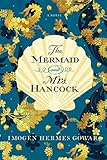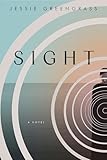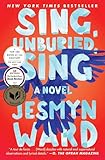The winner of the 2018 Women’s Prize for Fiction (formerly the Orange Prize and the Baileys Prize) will be announced on June 6. Since 1996, the award has recognized the best English-language novel by a woman published in the U.K. in the previous year, and it has steadily built a distinguished lineup of winners (including Marilynne Robinson, Chimamanda Ngozi Adichie, Barbara Kingsolver, Ali Smith, and Lionel Shriver). Amongst these celebrated voices, several debut authors have found their careers kickstarted by the prize—it was largely responsible for putting Eimear McBride on the map, and Madeline Miller and Téa Obreht also won for their first novels.
So it’s appropriate that this year’s shortlist of six (whittled down from a longlist of 16) consists of three established and three debut authors (Elif Batuman, Imogen Hermes Gowar, and Jessie Greengrass). I hope this guide helps you find a couple books among them that speak to you.
The 2018 shortlist:
 The Idiot by Elif Batuman
The Idiot by Elif Batuman
The Basics: A sedate series of vignettes following the daily life of Selin, a college freshman in the mid-1990s who questions the foundations of language, navigates the confusing new territory of love by email, and finds herself teaching English in a Hungarian village over the summer.
Key Quote: “I kept thinking about the uneven quality of time—the way it was almost always so empty, and then with no warning came a few days that felt so dense and alive and real that it seemed indisputable that that was what life was, that its real nature had finally been revealed. But then time passed and unthinkably grew dead again, and it turned out that that fullness had been an aberration and might never come back.”
Read if You Like: Campus novels, deadpan humor, or stories that capture the rhythms of everyday life.
My Take: This is a witty, compassionate look at how youth can trap people into being simultaneously smart and shallow, and Batuman’s observational humor perfectly captures the casual absurdity of simple interactions.
 The Mermaid and Mrs. Hancock by Imogen Hermes Gowar
The Mermaid and Mrs. Hancock by Imogen Hermes Gowar
The Basics: Set in 1780s London, the novel opens with a merchant named Jonah Hancock as one of his captains returns with the news that he sold one of Hancock’s ships in exchange for what appears to be a small, mummified mermaid. To try to recoup his losses, Mr. Hancock begins selling tickets to the public, leading him to a fateful meeting with the vivacious Angelica Neal—a high-class courtesan looking for her next provider.
 Key Quote: “He puts his face by hers, his nose grazing her ear and his lips just upon her neck, until each of their breaths slows. Thus they sleep and thus they wake. There ought to be little else said on the matter, for lovers are all the same, and only of interest to themselves, but on this count it is remarkable: Angelica Neal has not felt this way before. Or if she has, she has forgot.”
Key Quote: “He puts his face by hers, his nose grazing her ear and his lips just upon her neck, until each of their breaths slows. Thus they sleep and thus they wake. There ought to be little else said on the matter, for lovers are all the same, and only of interest to themselves, but on this count it is remarkable: Angelica Neal has not felt this way before. Or if she has, she has forgot.”
Read if You Like: Meticulously researched historical fiction, luscious and somewhat verbose prose, or tales with a tinge of magical realism.
My Take: Although a bit more superficial than the titles it’s being compared to (like The Essex Serpent by Sarah Perry), this is a pacey romp that cleverly considers issues of gender, wealth, and class mobility.
 Sight by Jessie Greengrass
Sight by Jessie Greengrass
The Basics: A compact novel that follows a British woman in her 20s as she grapples with major life events, including the death of her mother and the choice of whether or not to become a mother herself. Interwoven with her personal reflections are detours about historical figures who attempted to see into the human mind and body (through psychoanalysis, the discovery and use of X-ray waves, and early study of human anatomy).
Key Quote: “There are times when pregnancy seems like the narrowing down of options to a point, and still it is impossible to make oneself believe, quite, that there is no way out of it but this: a bed somewhere, a costing up of risks and this pain that tears you from yourself, your mind disbursed by it, your body made an exit wound.”
Read if You Like: Cerebral writing, insular first-person narration, or books that combine the academic and the personal.
My Take: One reader’s profundity is another’s pretension, and this often strayed into the latter for me. But the novel does offer some brilliant passages on family legacies, grief, and the philosophical ties between major historical events and our own intimate experiences.
 When I Hit You by Meena Kandasamy
When I Hit You by Meena Kandasamy
The Basics: A young Indian writer informs the reader that she has recently escaped from an oppressive, violent marriage, then rewinds to illustrate exactly how her husband mentally and physically abused her. Along the way, she confronts how Indian society abets victimizers while shaming victims, acknowledging that she herself believed this kind of thing would never happen to a woman like her.
Key Quote: “The suspicious, violent husband is a character, but already, just by being who he is, he is becoming the first semblance of a plot. It’s a plot that goes nowhere except in dizzying circles, and it’s a plot that remains tightly under his control. But, recently, I have begun to learn how to wrest it back. …I remind myself of the fundamental notion of what it means to be a writer. A writer is the one who controls the narrative.”
Read if You Like: Fiction with hints of memoir, mordant humor, or fragmented narratives.
My Take: This is a harrowing, fiercely intelligent account of one woman’s battles against both internal and external critics (and it’s my personal pick to win).
 Home Fire by Kamila Shamsie
Home Fire by Kamila Shamsie
 The Basics: When a British teenager named Parvaiz Pasha is recruited by ISIS, his sisters have opposing views on how to move forward—and that’s before their brother’s story gains international attention. Like its source material (the ancient Greek tragedy Antigone), this story poses the questions: How does the power of the individual compare to the power of the state? And what happens when their interests conflict?
The Basics: When a British teenager named Parvaiz Pasha is recruited by ISIS, his sisters have opposing views on how to move forward—and that’s before their brother’s story gains international attention. Like its source material (the ancient Greek tragedy Antigone), this story poses the questions: How does the power of the individual compare to the power of the state? And what happens when their interests conflict?
Key Quote: “If you look at colonial laws you’ll see plenty of precedent for depriving people of their rights; the only difference is this time it’s applied to British citizens, and even that’s not as much of a change as you might think, because they’re rhetorically being made un-British. …Even when the word ‘British’ was used [for the 7/7 terrorists], it was always ‘British of Pakistani descent’ or ‘British Muslim’ or, my personal favorite, ‘British passport holders,’ always something interposed between their Britishness and terrorism.”
Read if You Like: Multifaceted explorations of identity, classic retellings, or a touch of melodrama.
My Take: Fast-paced and stirring, this novel builds to a phenomenal final section that will surprise even readers of Sophocles.
 Sing, Unburied, Sing by Jesmyn Ward
Sing, Unburied, Sing by Jesmyn Ward
The Basics: When Leonie gets a call that her boyfriend, Michael, has been released from prison, she and their two children (Jojo, 13, and Kayla, 2) set out together to pick him up. Their days traveling through rural Mississippi are filled with family tension, drug trafficking, and ghostly presences.
Key Quote: “When Mama first realized that something was seriously wrong with her body, that it had betrayed her and turned cancerous, she began by treating it herself with herbs. …Her body broke down over the years until she took to her bed, permanently, and I forgot so much of what she taught me. I let her ideas drain from me so that the truth could pool instead. Sometimes the world don’t give you what you need, no matter how hard you look. Sometimes it withholds.”
Read if You Like: Southern gothic fiction, flawed and complex characters, or novels that connect America’s past and present demons through incisive portraits of black American experiences.
My Take: I’m in the minority of readers in that I found this book rather bland and static. But there’s a wonderfully seething undercurrent to the story, and there’s a reason Ward’s lyrical writing has earned her legions of fans.










